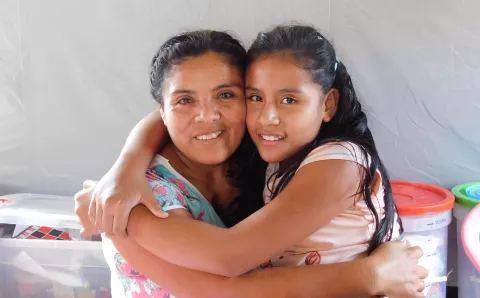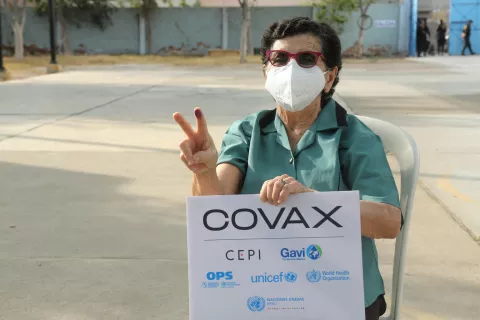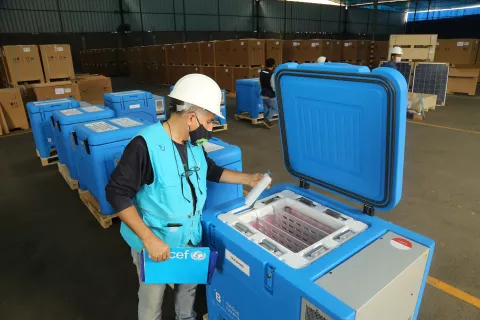Getting oxygen to the heart of the Amazon
As the pandemic reaches the most remote parts of the Peruvian Amazon, UNICEF is providing oxygen concentrators to help indigenous communities cope with the crisis.

- Available in:
- Español
- English
While COVID-19 affects everyone, not everyone is affected in the same way. In Peru, one of the pandemic’s hotspots, indigenous communities have been hit particularly hard. According to 2018 National Household Survey data, six out of ten Amazonian indigenous children in Peru live below the poverty line, in communities that have had historically limited investment in public services. Many local health centres have just one health worker and minimal intensive care capacity. Though surrounded by forests, medical oxygen is in short supply.
An alternative solution for remote communities
To help indigenous communities cope with the crisis, UNICEF recently delivered 40 oxygen concentrators to Peru’s Ministry of Health for distribution to local health centres in Amazonas, Loreto and Ucayali regions. The machines, which are the size of a suitcase, extract oxygen from the air we breathe to treat patients with respiratory illnesses, including COVID-19. They will travel by plane and boat.
“They will reach the most remote communities in the Amazon where it isn’t possible to have an oxygen plant, where delivering oxygen tanks is unsustainable. These concentrators are the technological alternative for those communities,” said Víctor Zamora, Peru’s former Minister of Health.
Keeping families together
Hugo Rázuri, UNICEF´s Health Specialist, highlights that the equipment not only provides life-saving oxygen therapy, but also keeps patients closer to home.
“Now they’ll be able to treat mild and moderate cases in the same facility without having to transfer them to hospitals. By treating patients on site, we avoid separating them from their families.”
The oxygen concentrators were procured internationally in coordination with UNICEF’s Supply Division. The Peru Country Office also acquired 40 step-down transformers to adapt them to the local power supply.

This intervention is part of UNICEF’s broader COVID-19 response to protect indigenous children in Peru. As of 24 July, UNICEF has also delivered hygiene kits and safe hygiene messages in Spanish and indigenous languages to 63 communities in the Peruvian Amazon, reaching almost 17,000 people.
“This crisis is far from over,” said Ana de Mendoza, UNICEF’s Representative in Peru. “Beyond this immediate response, we must work together with communities, the government, the private sector and the public to ensure that Peru is a place fit for indigenous children and their peers across the country.”




